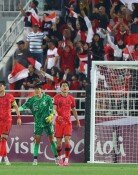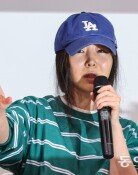Korean War hero Paik Sun-yup deserves proper treatment
Korean War hero Paik Sun-yup deserves proper treatment
Posted July. 13, 2020 07:56,
Updated July. 13, 2020 07:56
Former South Korean army Gen. Paik Sun-yup, South Korea’s first four-star general, died on Friday. After Korea’s liberation from Japan’s colonial rule, he joined the Military English Academy, and the National Defense Guard, serving on the South Korean military since its foundation. While serving as the head of the Defense Ministry’s intelligence bureau, he singled out and rooted out members of the Namro (South Korean Workers’) Party from the military after the Yeosun uprising, and established a disciplined South Korean military. After the outbreak of the Korean War, Paik served as the Commander of the 1st Infantry Division, and deterred the invading North Korean military from breaking the Nakdong River Frontline at the Battle of Dabu-dong, helping enable the South Korean military and the allied forces to counterattack. After the Incheon Landing, he spearheaded the advance of the South Korean military into Pyongyang. When the war was in deadlock near the 38 parallel due to Chinese troops’ surprise attacks, he spearheaded a military operation to subjugate Palchisan (communist militia) on Mount Jiri and controlled the enemy force’s agitation and provocations at the back. The nation’s hero was in every decisive moment during the Korean War.
Thanks to his robust capability as military commander and outstanding English skills, Paik was the driving force of the South Korean military in its joint operations with the U.S. Earning recognition for his distinguished military service and contributions, he was appointed to the Army chief of staff of the South Korean military at age of 32 during the Korean War, and was later promoted to the military’s first four-star general. The U.S. military would downplay the South Korean military that lacked combat experiences, but it recognized Gen. Paik’s outstanding capability and courage. The commanders of the U.S. Forces stationed in South Korea would always pay visit to him whenever they newly assumed the post, which has been a tradition until today. Paik was the de facto symbol of the South Korea-U.S. military alliance.
However, the committee to investigate pro-Japanese and anti-Korean national acts, which was established in 2005 during the Roh Moo-hyun administration, labeled Paik “pro-Japanese” while he was widely respected as a retired Korean War hero. The committee claimed that while serving in the Japanese military’s Gando Special Force in Manchuria, Paik suppressed Korea’s independence army. Then as a lawmaker in 2012, Kim Kwang-jin, the incumbent presidential secretary for political affairs, made such an accusation during parliamentary inspection of the government, which caused political controversy and disruptions. According to study by historians, the Gando Special Force mostly dealt with the Palo Army of the Chinese Communist Party. Moreover, around 1943 when Gen. Paik joined the Gando Special Force, the Northeast Anti-Japanese Joint Forces to which China’s Palo Army had already fled to other regions due to Japanese troop’s massive suppression operations.
The South Korean ruling party and some civic groups have claimed that Gen. Paik should neither be buried at the Seoul National Cemetery nor at the Daejeon National Cemetery. The Ministry of Patriots and Veterans Affairs rejected Gen. Paik’s burial at the Seoul National Cemetery, and instead decided to bury him at the Daejeon National Cemetery. Trying to avoiding further controversy, he had accepted his burial in Daejeon before his death, which we can find the dignity of an honorable war hero. The Moon Jae-in administration should find a way to bury the late general at the Seoul National Cemetery. The Korean Wa hero deserves it for defending our lives and freedom from North Korea’s invasion during the war.







